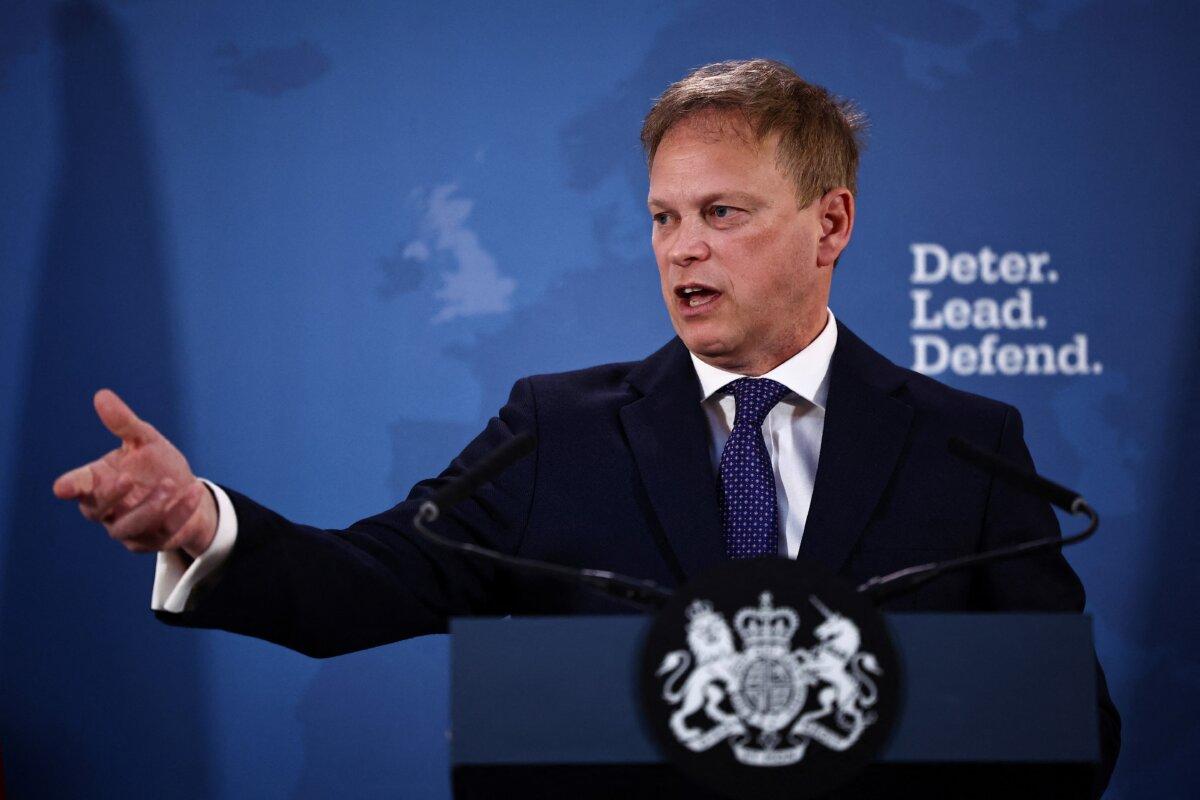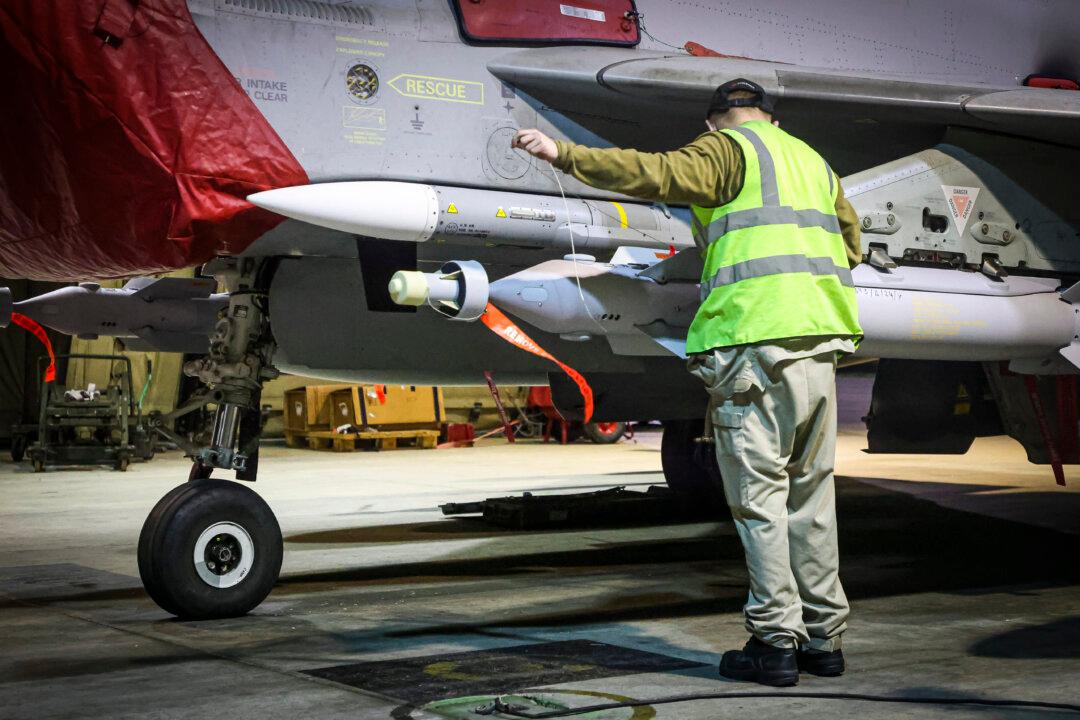A second poll in as many months has suggested that few adults are prepared to pick up arms voluntarily, after a prominent pollster warned that the British military should be “deeply alarmed” by the “lack of appetite” among Britons to fight for their country.
A new survey, conducted by More in Common at the end of January and released this week, appears to have confirmed the significant lack of willingness among the British public, particularly those under 45, to participate in military conscription.
The poll revealed that nearly half of respondents under 45 would refuse military conscription, opting instead to face any resultant penalties. This contrasted starkly with just 27 percent expressing readiness to enlist if conscription were reinstated.
Director of PeoplePolling, Matt Goodwin, told The Epoch Times: “If I were in the British military, I would be deeply alarmed, not just by our clear lack of preparedness for a future conflict but the glaring lack of appetite among the British people for getting involved in that war effort.
“My latest polling finds only 17 percent of British adults say they would willingly fight for the country if there was another world war. So this isn’t only a problem to do with arms and equipment. This is fundamentally at root a problem to do with morale and national identity.
Reluctance in Younger Demographics
The warning comes after Defence Secretary Grant Shapps said last month that the UK was “moving from a post-war to pre-war world,” and NATO chiefs warned countries like the UK to be prepared for potential war with Russia.Reluctance in the latest poll was particularly pronounced among younger demographics, with 45 percent of Generation Z respondents aged 18 to 24 and a similar proportion of those aged 25 to 34 showing resistance to the idea of mandatory military service.
On the potential for future wars to be fought without high levels of conscription, nuclear expert Professor Bahram Ghiassee told The Epoch Times: “It is inevitable that fewer and fewer individuals will be physically involved in future military conflicts in Western Europe. Future wars will be increasingly technological wars, where missiles, unmanned aerial drones, underwater drones, robots, AI, etc., will be deployed by the belligerents.”
Speaking to Talk TV on Monday, Prime Minister Rishi Sunak said: “Do I think we [Britain] are well-protected and well-invested? Yes. We are the second biggest defence spender in NATO. We have been for a decade. I mean, as you can see from what we’ve done in Ukraine, we will stand up for the things that we believe in. We won’t let aggression go unchecked and unpunished.”
Most experts agree that while conscription may pose a challenge, nuclear preparedness remains the highest priority for a potential conflict with a modern military superpower.

UK Has Nuclear Capability to Counter Threats
As threats to international security emerge via closer collaboration by volatile nations like Iran with nuclear powers like Russia and communist China, Mr. Ghiassee told The Epoch Times: “The UK has the requisite nuclear capability to respond to the most extreme threats, and to counter emerging nuclear threats.“China, as yet, is not a credible nuclear threat, as its arsenal of approx 410 nuclear weapons is far inferior to the collective arsenal of the NATO members.
“North Korea, with approximately 30 nuclear weapons, has not, as yet, mastered the strategic missile technology capable of reaching Western Europe. Hence, it does not pose a realistic and credible nuclear threat to the West, including the UK.
“Iran, as a threshold nuclear state, at best, has neither the missile technology, nor the nuclear weapons, to pose a threat to the West, including the UK.
“As a matter of policy, the UK has reiterated that it would consider using its nuclear weapons, as a last resort, in self-defence, and in defence of its NATO allies.”
The UK currently has 225 nuclear warheads in service, which most defence analysts agree would be sufficient to counter current nuclear threats from any potentially hostile nations.
Mr. Ghiassee, an associate fellow at the Henry Jackson Society, added: “Technologically, the UK is highly advanced and, hence, has the capability to respond to an act of aggression perpetrated by Russia.
‘Preparing For a Conflict’
Speaking at a gathering of NATO defence leaders in Brussels in mid January, the chairman of NATO’s Military Committee warned that the military organisation was preparing for potential “conflict with Russia.”Adm. Rob Bauer told media: “We have to realise it’s not a given that we are in peace. And that’s why we [NATO forces] are preparing for a conflict with Russia.
“But the discussion is much wider. It is also the industrial base and also the people that have to understand they play a role.”
British Gen. Patrick Sanders warned at the end of January: “Within the next three years, it must be credible to talk of a British Army of 120,000, folding in our reserve and strategic reserve. But this is not enough.”
“We will not be immune and as the pre-war generation we must similarly prepare—and that is a whole-of-nation undertaking,” he added. “But we’ve been here before, and workforce alone does not create capability.”
Speaking during an event at the International Armoured Vehicles exhibition in London, Gen. Sanders added, “Our friends in Eastern and Northern Europe, who feel the proximity of the Russian threat more acutely, are already acting prudently, laying the foundations for national mobilisation.”
A YouGov poll conducted in January suggested that 38 percent of under-40s would refuse armed forces duty in a world war, while 30 percent still wouldn’t serve if Britain faced invasion.
The study concluded that 7 percent would volunteer in a world war, rising to 11 percent if mainland Britain was threatened. Twenty-one percent would not resist conscription in world war, rising to 23 percent if an invasion were imminent.







